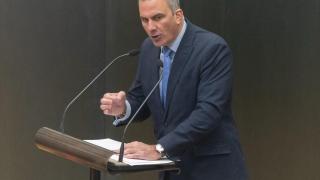
Spain on the brink of change: debate over ending daylight saving time
In 2025, the Spanish government has once again raised the issue of abolishing seasonal clock changes. Prime Minister Pedro Sánchez plans to bring this matter before Brussels, seeking the agreement of all EU countries. If the member states back the initiative, the changes could take effect as early as next year. At the heart of the debate is the choice between adopting permanent summer or winter time—a decision that could significantly impact the daily lives of millions of Spaniards.
Pros and cons of different timekeeping options
Switching to permanent summer time would mean that sunrise in winter would be later, especially in the northern and central regions. In cities like A Coruña and Bilbao, the sun would not appear on the horizon until nearly nine in the morning. On the other hand, evenings would be lighter, which could boost trade, the restaurant industry, and tourism. Residents could spend more time outdoors, and businesses might see an increase in customers. However, darker mornings could have a negative impact on well-being and mood, especially for children and the elderly.
If the country opts for winter time, sunrises will come earlier and the workday will begin in natural light. Chronobiology experts support this approach, noting its positive effects on health and sleep quality. However, evenings will become shorter, which could reduce activity in the service sector and shift established social rhythms. In the summer months, the sun will set earlier, which could impact the country’s tourism appeal and lead to lower revenues in certain industries.
Economy vs Health: Diverging Perspectives
The debate over time changes goes beyond daily habits. Representatives of business, especially in tourism and hospitality, advocate for maintaining long, light-filled evenings. In their view, this boosts revenue and extends the season of activity. At the same time, doctors and scientists stress the importance of synchronizing with natural rhythms to reduce stress and improve overall public wellbeing. Both sides present convincing arguments, making the decision particularly complex.
Public Opinion and Lessons from the Past
Polls show that Spaniards remain divided. Some citizens prefer permanent summer time, considering it more convenient for leisure and relaxation. Others lean toward winter time, citing benefits for health and sleep. Back in 2018, the European Commission proposed abolishing clock changes, and a majority of respondents supported the idea. However, EU member states failed to reach a unified agreement.
In October 2024, Spain once again switched to winter time. However, if Sánchez’s initiative is approved, this change could be one of the last. In the coming months, EU countries will continue discussions to decide which time regime will become permanent for millions of residents.












